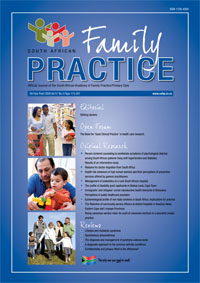Reasons for Doctor Migration from South Africa
Keywords:
reasons doctor migration South Africa
Abstract
Background: The migration of doctors from their home countries is not a new phenomenon. Apart from voluntary migration due to various reasons, medical professionals, often from sub-Saharan Africa, are actively recruited by developed countries. Doctors in South Africa are esteemed for the high standard of training they receive locally, a quality which renders them prime candidates for employment. Various factors are involved in the push-pull theory of migration. It has, however, been reported extensively that push factors usually play a much greater role in doctors' decision to leave their countries of origin, than the pull factors in the host or recipient country. Push factors motivating migration most frequently include dissatisfaction with remuneration packages and working conditions, high levels of crime and violence, political instability, lack of future prospects, HIV/AIDS, and a decline in education systems. In addition to a depletion of intellectual resources through losing highly qualified and skilled individuals, source countries also face substantial monetary implications caused by the migration of doctors. The cost of training medical students is subsidised by the government, and could be regarded as a lost investment when young graduates seek permanent employment abroad. The aim of the study was to investigate the profile of South African qualified physicians who emigrated from South Africa. Methods: The investigation was conducted in 2005 as a descriptive study where the participants were primarily found by the snowball sampling method. The initial group of participants were known to the researcher. Participants had to be graduates from South African medical schools/faculties, living abroad and in possession of a permanent work permit in the countries where they were employed. Short-term locum doctors were not included. Information, consent letters and questionnaires were either hand-delivered or e-mailed, and completed forms and questionnaires were returned via these routes. Participation was voluntary. Results: Twenty nine of 43 potential participants responded, of which 79.3% were male and 20.7% female between the ages of 28 and 64 years (median 47 years). The year of graduation ranged from 1964 to 2000 (median 1985), and the year of leaving the country ranged from 1993 to 2005 (median 2002). The majority (72.4%) were in private practice before they left, 27.5% had public service appointments and 17.3% were employed by private hospitals. Seventy nine percent of respondents had postgraduate qualifications. Countries to which migration occurred included New Zealand, United Arab Emirates, Bahrain, United Kingdom, Canada, Yemen, and Australia. Forty one percent of respondents indicated that they would encourage South African young people to study medicine, although 75% would recommend newly graduate doctors to leave the country. Financial factors were indicated as a reason for leaving by 86.2% of the respondents, better job opportunities by 79.3%, and the high crime rate in South Africa by 75.9%. Only 50% of the respondents said that better schooling opportunities for their children played a role in their decision to leave the country. Approximately one-fifth (17.9%) of the respondents indicated that they already had family abroad by the time they decided to emigrate. Conclusions: Financial reasons were the most important motivating factor in this particular group of doctors who relocated to overseas destinations, followed by working conditions and the rate of crime and violence in the country. In comparison to other investigations published previously, the results presented here clearly indicate a tendency that more doctors offer financial and crime-related reasons for migration from South Africa than before. In order to prevent the loss of medical expertise from a society already in need of quality healthcare, issues compelling doctors to look for greener pastures should be addressed urgently and aggressively by stakeholders.
Published
2009-04-25
Section
Original Research
By submitting manuscripts to SAFP, authors of original articles are assigning copyright to the South African Academy of Family Physicians. Copyright of review articles are assigned to the Publisher, Medpharm Publications (Pty) Ltd, unless otherwise specified. Authors may use their own work after publication without written permission, provided they acknowledge the original source. Individuals and academic institutions may freely copy and distribute articles published in SAFP for educational and research purposes without obtaining permission.

